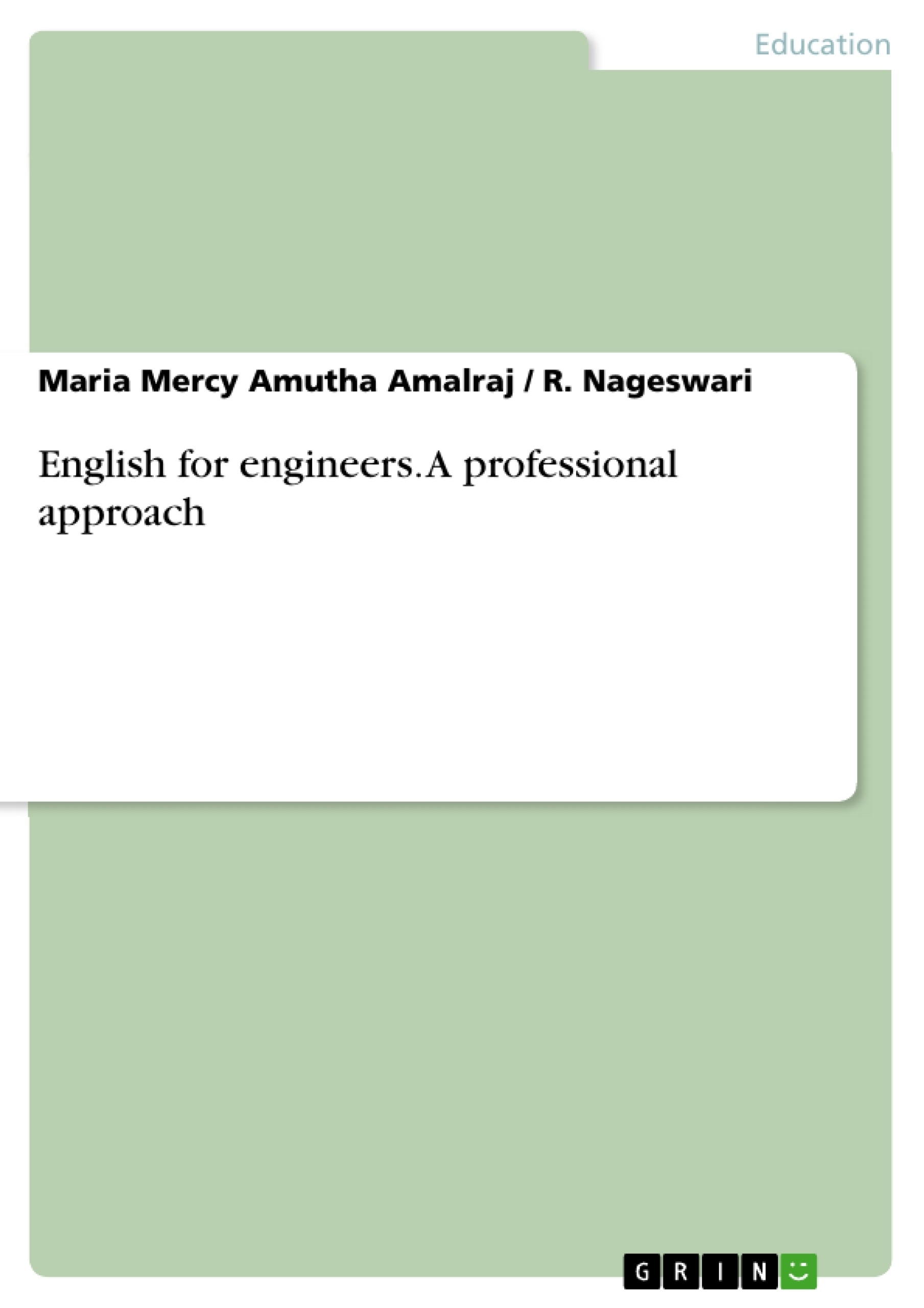This book is intended to aid engineering students from institutes of technology to equip themselves for their professions.
The areas of study were chosen after consultation with alumni of VIT University, India and our colleagues from the Engineering department and is designed to supplement the specific learning needs of young engineers as they gear up to join a global work force and face international competition. This book is an outcome of need based course and has been put to test with two batches of students. The feedback from students has been carefully considered and topics and details have been added to this text based on the student’s feedback. Hence, this book is ideal for students who would want to engage in a self-study and for Educators who want to give their young engineers exactly what they need for their profession.
For the convenience of the Teaching community this book has been divided into Theory and Laboratory. There is specific focus on the skills the learners would have to acquire in the process. Theory focuses on mostly aspects that relate to writing skills required for the professionals and develop their reading too. The Laboratory focuses on their Listening and Speaking skills. From their professional front this book has chapters dedicated to Career and Interview skills.
The tasks and activities are extremely motivational and encouraging, and cater to a mixed abilities group of learners. Emphasis has also been given to pair-work, group discussions and role-plays.
Each chapter concludes with a revision-based activity for consolidating the previous learning. In fact, this trait is repeatedly highlighted in the book, where learners encounter those items which they have learnt earlier in the book, thus facilitating broad-based comprehension.
Finally, this book can be used independently as a course book, and can also function as an excellent supplement to the existing course books.
Table of Contents
- THEORY
- UNIT I
- I PROFILING READERS
- II DRAFTS OF ABSTRACT AND EXECUTIVE SUMMARY
- UNIT II
- III PROOF READING
- IV WRITING INSTRUCTIONS
- V TECHNICAL MEMOS
- UNIT III
- VI PREPARING QUESTIONNAIRES
- VII STATEMENTS OF PURPOSE
- VIII REPORT WRITING
- UNIT IV
- IX TECHNICAL PROPOSAL
- X TRANSCODING
- UNIT V
- XI RESUME WRITING
- XII WRITING EFFECTIVE APPLICATIONS
- XIII LETTERS FOR YOUR CAREER
- LABORATORY
- UNIT I
- I GROUP DISCUSSIONS
- UNIT II
- II PRESENTATION SKILLS
- UNIT III
- III STEPS TO A SUCCESSFUL CAREER
- UNIT IV
- IV INTERVIEWS
Objectives and Key Themes
This book aims to equip engineering students with the essential communication skills required for their professional careers. It provides a comprehensive approach to developing proficiency in English, focusing on both written and oral communication.
- Developing professional writing skills, including technical report writing, proposals, and memos.
- Enhancing reading comprehension and analysis skills.
- Mastering effective presentation and public speaking skills.
- Building confidence in group discussions and collaboration.
- Preparing for job interviews and navigating the career landscape.
Chapter Summaries
The book is divided into five units, covering a range of topics essential for engineering professionals. Unit I focuses on profiling readers and crafting effective abstracts and executive summaries. Unit II delves into the importance of proofreading, writing clear instructions, and drafting professional technical memos. Unit III explores the creation of questionnaires, writing statements of purpose, and the art of report writing. Unit IV provides guidance on developing technical proposals and transcoding techniques. Unit V concludes with chapters on resume writing, crafting effective applications, and writing impactful letters for career advancement.
Keywords
This book emphasizes the importance of professional communication skills, encompassing technical writing, presentation skills, and career development strategies. Key themes include technical writing, communication skills, professional development, career preparation, and effective communication in engineering contexts. The book aims to equip students with the necessary skills to navigate the global engineering landscape successfully.
Frequently Asked Questions
What is the main objective of 'English for engineers'?
The book aims to equip engineering students with essential communication skills, focusing on professional writing, reading comprehension, and oral skills required for a global workforce.
How is the book structured for students and teachers?
The book is divided into two main parts: Theory, which focuses on writing and reading skills, and Laboratory, which emphasizes listening, speaking, and presentation skills.
Does the book cover technical writing formats?
Yes, it includes detailed sections on writing technical memos, reports, technical proposals, instructions, and abstracts.
What career-related skills are included?
The book features chapters on resume writing, drafting effective job applications, interview skills, and strategies for a successful career.
Is this book suitable for self-study?
Yes, the book is designed for both classroom use and independent self-study, with consolidated revision activities at the end of each chapter.
What oral communication skills are practiced?
The Laboratory section provides tasks for group discussions, presentation skills, and role-plays to build confidence in professional speaking environments.
- Citar trabajo
- Maria Mercy Amutha Amalraj (Autor), R. Nageswari (Autor), 2016, English for engineers. A professional approach, Múnich, GRIN Verlag, https://www.grin.com/document/342451



